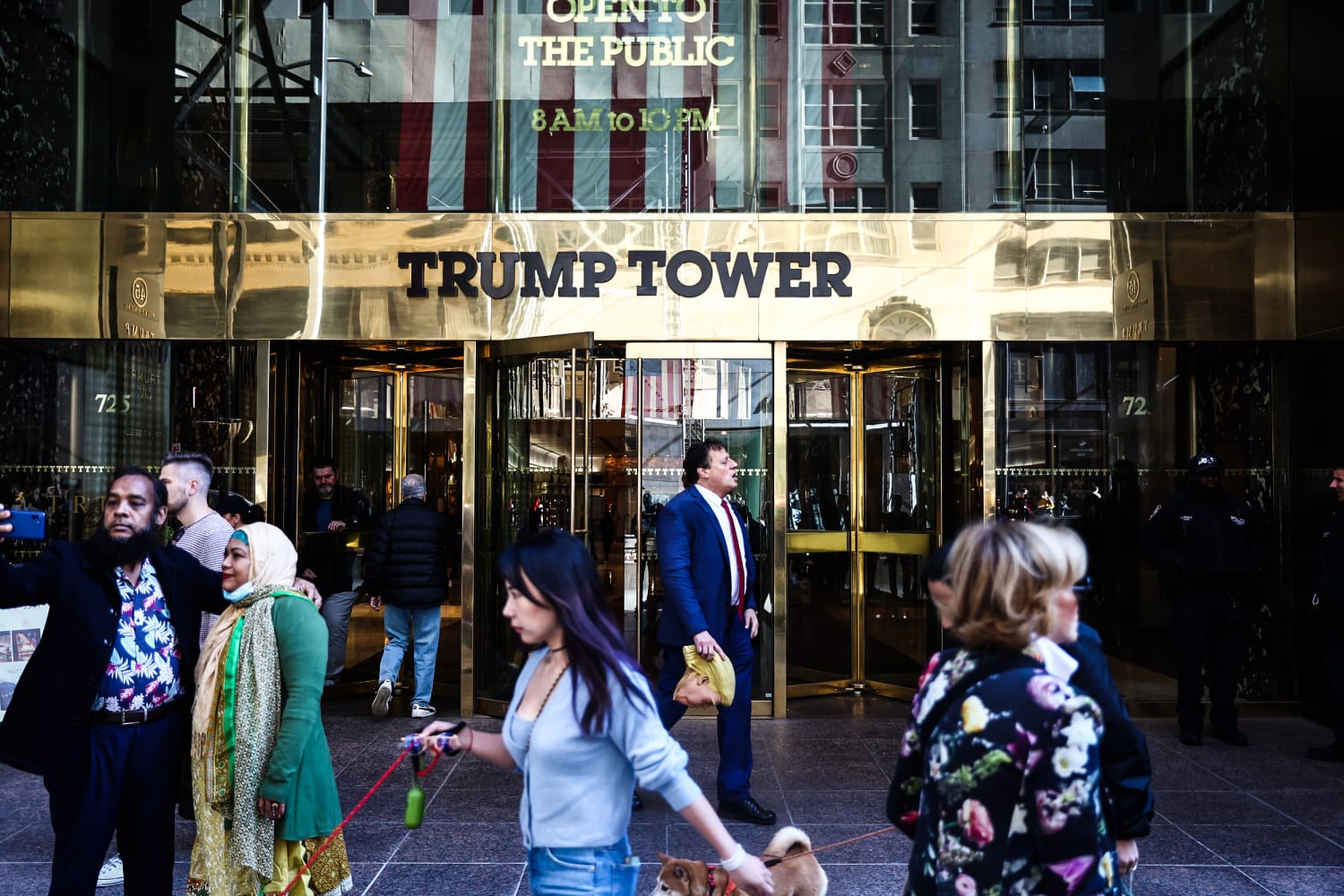

The Trump Organization was hit with $1.6 million in fines Friday when a New York judge sentenced it for running a 15-year tax fraud scheme that prosecutors said top executives at the company orchestrated out of pure greed.
Trump Corp. and Trump Payroll Corp. — both subsidiaries of the Trump Organization — were convicted last month on 17 counts, including conspiracy, criminal tax fraud and falsifying business records.
Prosecutor Joshua Steinglass had urged acting Manhattan Supreme Court Justice Juan Merchan to fine each company the maximum allowed under the law.
“The sheer magnitude of the fraud calls for the maximum possible fine for falsifying business records and helping senior managers evade taxes as they defrauded the tax authorities. The crimes were deep, wide and long, lasting for decades,” Steinglass said. “The conduct can only be described as egregious.”
The judge agreed, fining Trump Corp. $810,000 and Trump Payroll $800,000.
Manhattan District Attorney Alvin Bragg hailed the sentence in a statement.
“While corporations can’t serve jail time, this consequential conviction and sentencing serves as a reminder to corporations and executives that you cannot defraud tax authorities and get away with it,” Bragg said.
The lone person charged in the scheme was the company’s former chief financial officer, Allen Weisselberg.
Weisselberg, 75, pleaded guilty in August and became the prosecution’s star witness during the weekslong trial, where he described how top employees and the company evaded paying taxes they owed.
Weisselberg was also the biggest personal beneficiary of the scheme, prosecutors said. He collected $1.76 million in “indirect employee compensation,” including a rent-free apartment, expensive cars, private school tuition for his grandchildren and new furniture. Other executives received similar perks and were paid bonuses as independent contractors, saving the company money in payroll taxes, Weisselberg testified.
Weisselberg was sentenced this week to five months in jail at Rikers Island. He could have faced up to 15 years in prison had he been convicted at trial.
Weisselberg and the company were first charged in June 2021 after a yearslong investigation into the company’s business practices by the Manhattan district attorney’s office and the state attorney general’s office.
At trial, the company’s lawyers painted Weisselberg as the lone bad actor and maintained that other executives, as well as Trump, were oblivious to what he was up to.
“This case was all about Allen Weisselberg committing tax fraud on his personal tax returns. Every witness repeatedly testified that President Trump and the Trump family knew nothing about Allen Weisselberg’s actions,” Trump attorney Susan Necheles maintained after the verdict.
In a statement after the sentencing, a spokesperson for the Trump Organization said Weisselberg is “a victim. He was threatened, intimidated and terrorized” into cooperating with prosecutors.
“President Trump and the Trump Organization are also both victims,” the statement continued, because “these politically motivated prosecutors will stop at nothing to get President Trump.”
“We did nothing wrong and we will appeal this verdict,” it concluded.
The $1.6 million in penalties the district attorney sought is the maximum allowed under applicable statutes in the case. Bragg said after the sentencing that that maximum is not enough, adding that “our state law must change so that we can impose more significant penalties and sanctions on corporations that commit crimes in New York.”
Experts have said the bigger problem for the company than the fine is the conviction, because it could affect the Trump Organization’s ability to get bank loans.
In brief remarks to reporters after the sentencing, Bragg suggested there might be more to come. He said the sentencing “closes this important chapter of our ongoing investigation into the former president and his businesses. We now move on to the next chapter.”
The Trump Organization faces other legal problems in the state. State Attorney General Letitia James has filed a $250 million civil suit alleging that the company had been inflating its worth in financial statements to banks and insurers by billions of dollars.
The judge overseeing that case has issued an order blocking the company from transferring assets without court approval and appointed an independent monitor to oversee the company’s financial statements.
Trump has repeatedly complained that the actions of the district attorney and the attorney general are part of the “witch hunt” against him.

 Latest Breaking News Online News Portal
Latest Breaking News Online News Portal




